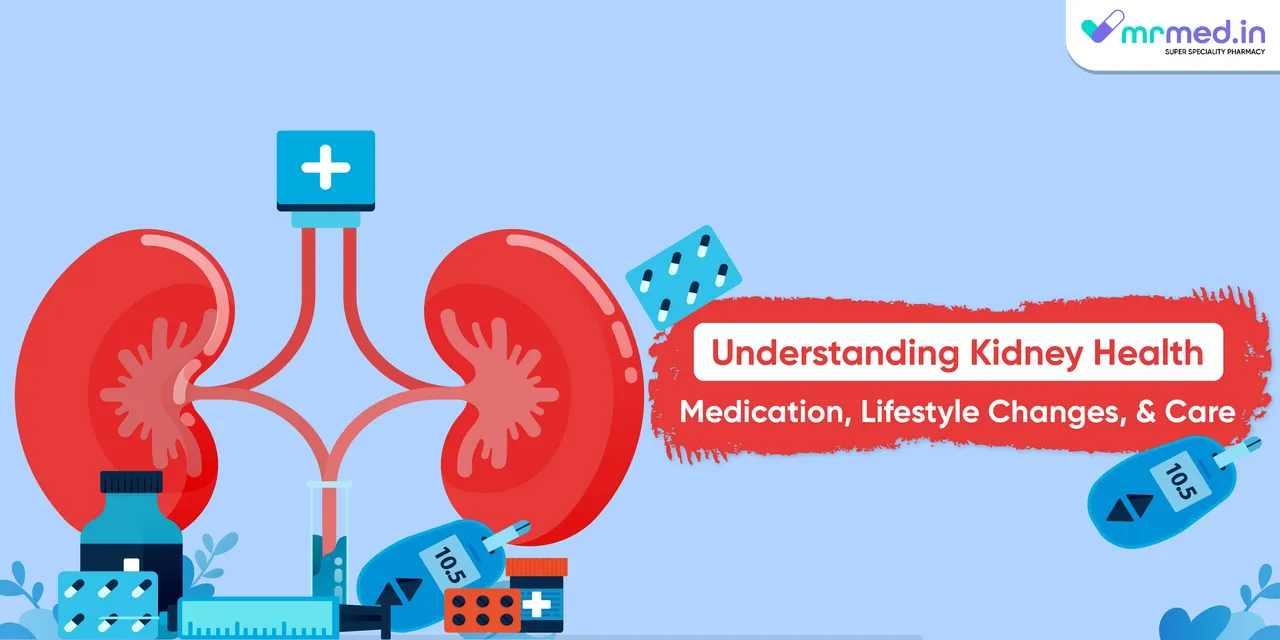
Kidneys, a vital component of determining how your overall health is, works as the best filtrator of toxins that might have accidentally (or not so ‘accidentally’) become a part of your system. The working of the kidneys is crucial for eliminating all waste, balancing the electrolytes, and controlling your blood-pump rate.
Nonetheless, organ failures, one of which is acute or chronic kidney diseases, can be disruptive to a person's lives. Recognizing that a balanced approach between the right medication and life style changes along with close attention to the patients can greatly improve not only the kidney function but also the overall pride of the life quality. The article looks into the complexity of kidney health management, focusing both on acute and chronic conditions, with an impartial attitude on medical treatments.
Understanding the functioning of your kidneys
Kidneys act in cooperation to make sure that body rehydration, toxicity elimination, and hormone-related activities such as blood pressure, and bone health have the proper regulation. When kidneys damage, the accumulation of the harmful substances leads to severe health problems. Kidney failure of acute or chronic types presents with serious damage to the kidney but with differences in management strategies.
Acute Kidney Disease (AKD): Usually, acute kidney ailments happens suddenly due to factors such as accidents, surgeries, or severe infections. AKD which can present a serious condition requiring urgent treatment and recovery is possible in most cases if it receives the right and early treatment.
**Chronic Kidney Disease (CKD): **It is a process that is progressive and gradual in nature that owe its origin to the chronic conditions like hypertension, diabetes, and autoimmune kidney diseases. While AKI is temporary and concentrates on slowing down the progression and managing the symptoms, CKD is a chronic disease that is usually irreversible. This highlights that the effective approach is continuous management and intervention in the early stages.
Medications for controlling how the kidneys work
Controlling kidney disease, whether it is acute or chronic, ought to happen in a comprehensive way incorporating constantities in monitoring, medication, and lifestyle alterations. Systematic and ongoing examinations are very important in order to timely and duly monitor how the kidney functions and change where needed the treatment.
Medication is the main element of the kidney disease management. The shutdown of blood vessels is one of the precursors of diabetic kidney disease, which is a long-term problem. Therefore, control of blood sugar and blood pressure is very important. In such scenarios, Nefrosave tablet has demonstrated effectiveness by providing a combination of N-acetylcysteine and taurine and those have the possibility to protect kidneys as well by combating oxidative stress which is important in the advancement of CKD.
7 lifestyle changes that can help manage the kidney-functioning better
Life style changes are equally significant in the management of kidney disease. Things to keep in mind are listed below:
Dietary Adjustments: Reducing sodium intake is imperative in managing hypertension, a commonly associated factor with kidney injury. Therefore, a diet that shuns processed foods while promoting fruits, vegetables, and whole grains can greatly help kidney health.
Regular Exercise: Continuous physical activity has effects on controlling blood pressure and maintaining a perfect and healthy Body-Mass Index (BMI), reduces the risk of conditions that can cause kidney disease.
**Adequate Hydration: **Keeping our body hydrated is a necessary point for kidney functioning. The adequate intake of water ensures the kidneys do a better work of eliminating harmful waste from the blood.
Avoidance of Toxins: Eliminating the contact with environmental toxins and smoking cessation are the primary methods to decrease the kidney stress and avoid the additional damage to them.
**Alcohol Moderation: **Alcohol restriction is a vital factor which may support kidney health as well. Drinking alcoholic beverages is a factor of losing water; it is the reason why the kidneys have to work harder to filter them out.
Monitor Protein Intake: Although protein is a vital component of any diet, an excess intake can overwhelm the kidneys. It is imperative for people who suffer from kidney disease to measure and alter their protein intake upon medical counsel regularly.
**Stress Management: **Stress in the long run may result in unhealthy behaviors that not only impair but also damage the kidneys like adopting poor diet and increasing blood pressure. Mindfulness, meditation and regular physical activity are the techniques which are used for stress management.